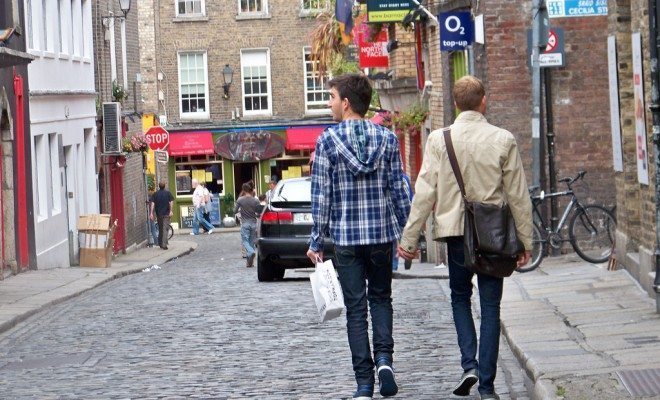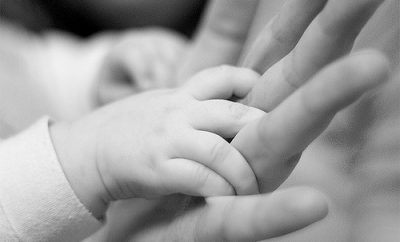 Image courtesy of [QueenSunshine via Flickr]
Image courtesy of [QueenSunshine via Flickr]
News
Is Ireland About to Make History?
Today, there is a historic vote in the Republic of Ireland. It’s poised to become the first country to legalize same-sex marriage through a referendum. While select other nations allow same-sex marriage, those laws have come about as the result of a court decision or through legislation being passed. Ireland would be the first nation to legalize gay marriage through a popular vote, which is required to change its constitution. Given Ireland’s complicated relationship with religion, the fact that this nation has become the battleground for a gay marriage vote says quite a bit about the waning influence of Catholicism in the country.
The question posed to voters about the matter will be a “yes” or “no” one; they’ll be asked to confirm or deny the statement that: “Marriage may be contracted in accordance with law by two persons without distinction as to their sex.” The vote has been widely discussed on social media, with hashtags like #YesEquality and #VoteYes taking the lead. There’s also been social media coverage of many Irish citizens living in various places abroad who are returning home to cast their votes.
Many young people had travelled from as far as New York and Brussels especially to cast their vote #hometovote pic.twitter.com/2j0zMgCNC0
— Carole Leger (@CaroleLeger) May 22, 2015
Look at this!! #hometovote Dublin Airport last night with People coming home to VOTE pic.twitter.com/G2U4MdyD5k
— David O’Reilly (@DavidOReilly25) May 22, 2015
Ireland has an incredibly long and storied Catholic tradition, and roughly 85 percent of Irish people identify as Catholic. The Catholic Church in Ireland has stood in opposition to the campaign to legalize same-sex marriage. For example, the Catholic Iona Institute, along with other groups, have advocated for a “no” vote in today’s referendum. Common arguments cited in this debate over marriage equality appear to include the old argument about “redefining” marriage, despite the fact that this would only create the opportunity for same-sex civil marriages. There’s also concern from “No” voters over the prospect of children being raised by gay parents, despite the fact that such concerns have been handily debunked in numerous studies.
The fact that polls are looking very promising for the “Yes” voters–from what I’ve seen they’ve ranged from about 70-80 percent voting yes–really does say a lot about the future of Ireland as a Catholic stronghold. Of course, it hasn’t just been the Catholic Church’s hesitancy when it comes to social issues like gay marriage that have led to waning support. The highly publicized sexual abuse and pedophilia scandals of the last few decades garnered the Catholic Church significant amounts of criticism. For example, in 2011 a survey found that just 18 percent of Catholics in Ireland were regularly attending mass. That’s an incredibly sharp decline from 1984, when it was reported that 90 percent of practicing Catholics attended mass on a regular basis.
So, despite Ireland’s Catholic tradition, the campaign to allow marriage equality has moved forward. While the vote totals probably won’t be released until tomorrow, there’s been a large wave of support for the “Yes” vote to legalize marriage equality. Ireland, despite all odds, does seem in a good position to make history and become the first nation to legalize same-sex marriage by popular vote.








Comments